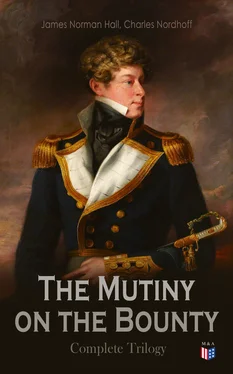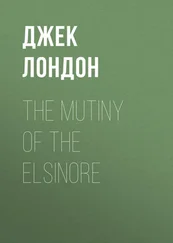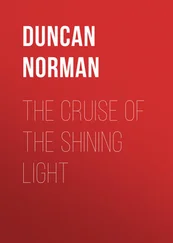James Norman Hall, Charles Nordhoff
The Mutiny on the Bounty - Complete Trilogy
Madison & Adams Press, 2022
Contact: info@madisonadamspress.com
EAN 4066338121899
This is a publication of Madison & Adams Press. Our production consists of thoroughly prepared educational & informative editions: Advice & How-To Books, Encyclopedias, Law Anthologies, Declassified Documents, Legal & Criminal Files, Historical Books, Scientific & Medical Publications, Technical Handbooks and Manuals. All our publications are meticulously edited and formatted to the highest digital standard. The main goal of Madison & Adams Press is to make all informative books and records accessible to everyone in a high quality digital and print form.
Mutiny on the Bounty
Men Against the Sea
Pitcairn's Island
Table of Contents
Foreword
I. Lieutenant Bligh
II. Sea Law
III. At Sea
IV. Tyranny
V. Tahiti
VI. An Indian Household
VII. Christian and Bligh
VIII. Homeward Bound
IX. The Mutiny
X. Fletcher Christian
XI. The Last of the Bounty
XII. Tehani
XIII. The Moon of Pipiri
XIV. The Pandora
XV. Doctor Hamilton
XVI. The Roundhouse
XVII. The Search for the Bounty
XVIII. The Last of the Pandora
XIX. Ten Weary Months
XX. Sir Joseph Banks
XXI. H.M.S. Duke
XXII. The Case for the Crown
XXIII. The Defense
XXIV. Condemned
XXV. Tinkler
XXVI. Withycombe
XXVII. Epilogue
The Trilogy of “The Bounty”
Table of Contents
They began it as buddies. Nordhoff was a graduate of the Ambulance Service. Norman Hall was a veteran of Kitchener’s Army. Just by chance he was in London during the first August days of 1914, and when the mob which went swirling round Nelson’s Column to the lilt of “Good-bye, Leicester Square” was hammered into the kernel of an army, he was part of it. Honorably discharged, he reenlisted, this time in the French aviation service, and found the berth he had been fashioned for in the Escadrille Lafayette. Flying was the thing for Charles Nordhoff, too, and when he joined the squadron two contributors to the Atlantic Monthly met each other for the first time, and interchanged compliments gracefully given and received. This chance friendship, springing from a common love for letters, was riveted by the comradeship of high adventure. Each found in the other a man whose silence and whose speech delighted and refreshed him. From that day to this, they have shared a common destiny as brothers.
Captain Hall and Lieutenant Nordhoff both distinguished themselves. Were I to lay stress on their military records I should outrage the modesty of both, but somewhere in Nordhoff’s trunk under a pile of dungarees you will find a croix de guerre with star, and a citation which his children will preserve. As for Hall, I will gratify him by passing over the words that Pétain wrote, but of the dead it is seemly to speak with living praise, and I am justified in recording that during one of his temporary deaths Hall was thus praised in public by the General of the VIIIth Army:
Brillant pilot de chasse, modèle de courage et d’entrain qui a abattu recemment un avion ennemi, a trouvé une mort glorieuse dans un combat contre quatre monoplanes, dont un a été descendu en flammes.
It is pleasant to remember that the writer of this sketch, mourning the same heroic death, was busily occupied in writing a memoir of the sort that might be well worth dying for, when he was interrupted by a cheerful letter from his resurrected hero, who had, it seemed, just made his breakaway from a German camp.
When both men were mustered from the service I saw them again on a memorable occasion. Each wrote to me without the other’s knowledge, asking for advice. Both had lived with intensity lives high above the conflict, and to both the stridency and (as they felt) the vulgarity of post-war civilization was past endurance. Each had ambitions, talents, and memories of great price. To transmute these intangibles into three meals per diem was the prosaic problem put up to me. How well I remember the day they came to Boston. Reticent and illusive, there was something in each of them that in its pure essence I have not known elsewhere. Conrad called it Romance. When Romance and Chivalry come to refresh my cumbered mind, I see those two young men just as I saw them then.
We talked and we talked, and then we adjourned for counsel to a little Italian restaurant. Those were days when vino rosso was a legitimate dressing for a salad to be eaten with an omelette. We ate, drank, and speculated of those places in the world where the dollar or its equivalent is not the sole essential medium of exchange. I called for a geography. We opened it at Mercator’s projection, and hardly were the pages pinned down by twin cruets of oil and vinegar, when both the adventurers with a single swoop pointed to the route which Stevenson had taken. I called up Cook for information on prices, and while my companions chatted of palm trees and hibiscus—Loti seasoned with Conrad—I did several sums in addition and multiplication.
We planned with the resolution of genius. Then and there Hall and Nordhoff drew up the rough outline of a miraculous work on the South Seas, and when a day or two later the silent partner took it with him to New York, all the spices of the East were in the chapter headings. One publisher was pitted against another. For once in his life the salesman was a credit to his profession, and when he returned, the respectable firm of Hall and Nordhoff was incorporated with a capital of $7,000—$1,000 paid in. After all, there is more to literature than pretty words and an agile pen.
Historically, the first work of the firm was the official history of the Lafayette Flying Corps. Then came, I believe, the work on the South Seas which, as I have said, I had the honor to sell. Nordhoff wrote by himself a capital boy’s story, “The Pearl Lagoon,” based on his own early life in Lower California. Hall meantime turned out some admirably individual essays, stories, and poems, but the firm added enormously to its reputation when the story of the Escadrille was brilliantly retold as fiction under the title, “Falcons of France.” Of all aerial narratives, this, in my judgment, takes the first place both in its thrilling realism and in that delicate understanding of the co-ordination of mind, body, and spirit which is at once a flyer’s inheritance and his salvation.
A play followed—“The Empty Chair”—accepted for production on the screen. Of this I know only at second-hand, and will not speak, though I cannot but remark how strange is that conjunction of the planets under whose influence Hall and Nordhoff are reborn in Hollywood.
Now comes the firm’s latest and best bid for fame and fortune. Reader, have you ever heard of the strange history of His Majesty’s Ship Bounty? If ever the sea cast up a saltier story, I should like to know it. A chronicle of its events, clumsy enough in the telling, appeared—Lord, how long since: “The Pitcairn Islanders,” I think was the name of this particular volume. Anyway, it was bound in green and stamped in gold, and for all its heavy-footed style, a boy curled up on a sofa fifty years ago wore the pages through. There was mutiny on the good ship, as the world remembers. Lieutenant Bligh, the Commander, was lowered into his long boat to drift, God knows where, and the mutineers cracked on sail for Tahiti and Fate. At any rate, that story is of the primeval stuff Romance is made of, and if Captain Hall and Lieutenant Nordhoff are not the men to write it, then, thought I, Providence has been clean wrong in all the games she has played on them from the very beginning.
Читать дальше











